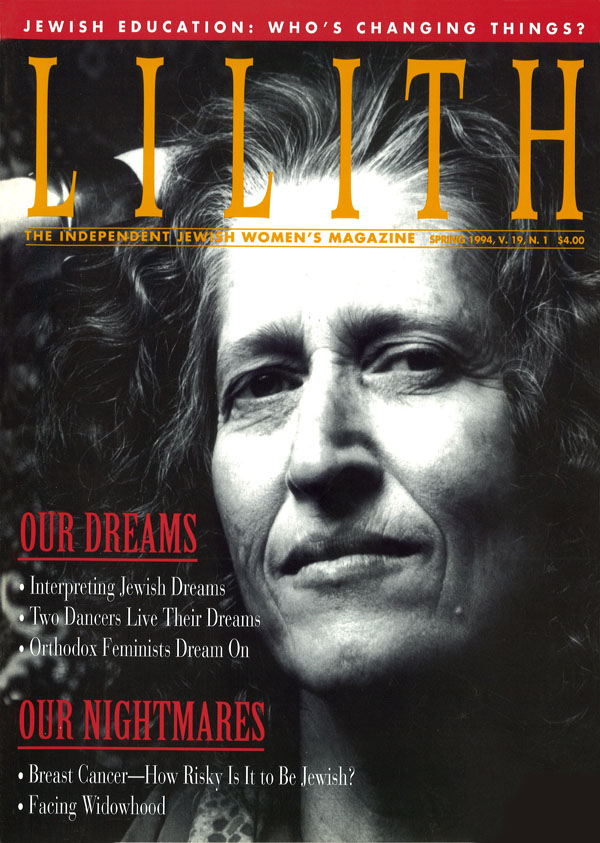feature
A clip-and-save addition to the Seder—a different take on being wise, wicked, simple and speechless.

Lilith asks: are Jewish women more at risk of breast cancer? Three women discuss being both feminist and Orthodox. A refugee uses her experiences as an immigrant to face widowhood.
Table of contents Get the issueA clip-and-save addition to the Seder—a different take on being wise, wicked, simple and speechless.
Two dancers who are living their dreams Come meet three LILITH readers—feminist educators—-from among the over 200 women, experts in various fields, who are already part of the LILITH Jewish Women’s Talent Bank.
Unexpectedly, Judaism and dance turn out to have common ground. "Ballet and religious observance both require discipline," City Ballet star Dena Kinstlinger notes. "I learned about one from the other." Ceremonial choreographer Fanchon Shur uses dance as a powerful engine driving Jewish ritual.
As she goes through the phases of widowhood, this feminist therapist suddenly realizes that she can learn a great deal from an unexpected source: her childhood refugee self!
After the funeral, Mama’s four daughters meet to open her secret drawer, excavating layers of her life: Mama’s first public library cards, letters home from camp, maps to family gravesites. One daughter takes home Mama’s white silk scarf—she’ll never wear it, but she’ll sniff it now and then, searching out the mother scent.
Naomi is a type—mid-late 30’s, observes the Sabbath, eats only kosher food, has a university education, a prestigious job with financial security, a wide circle of interesting friends, and an... Read more »
I am one of a small number of observant Jewish women who have taken upon themselves the mitzvot aseh shehazman g’rammah, the category of positive “time-bound” commandments that have traditionally been required only... Read more »
I am an Orthodox Jewish feminist, and I am lonely. As a member of a small Jewish community, I do not have many opportunities to talk with individuals who are... Read more »
Epidemiologists look at breast cancer; Jewish demographers look at statistics about Jewish women... but who’s putting both sets of facts together? Only LILITH.
Do your dreams ever have Jewish content? Our author shows how she takes her "Jewish" dreams seriously, and how you can too.
THE STATE VS. JEWISH DIVORCE In your article “Women Unbound” (Summer 1993), you state: “New York State and Canada have passed legislation prohibiting civil divorce until the religious divorce has been... Read more »